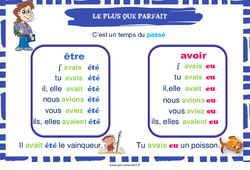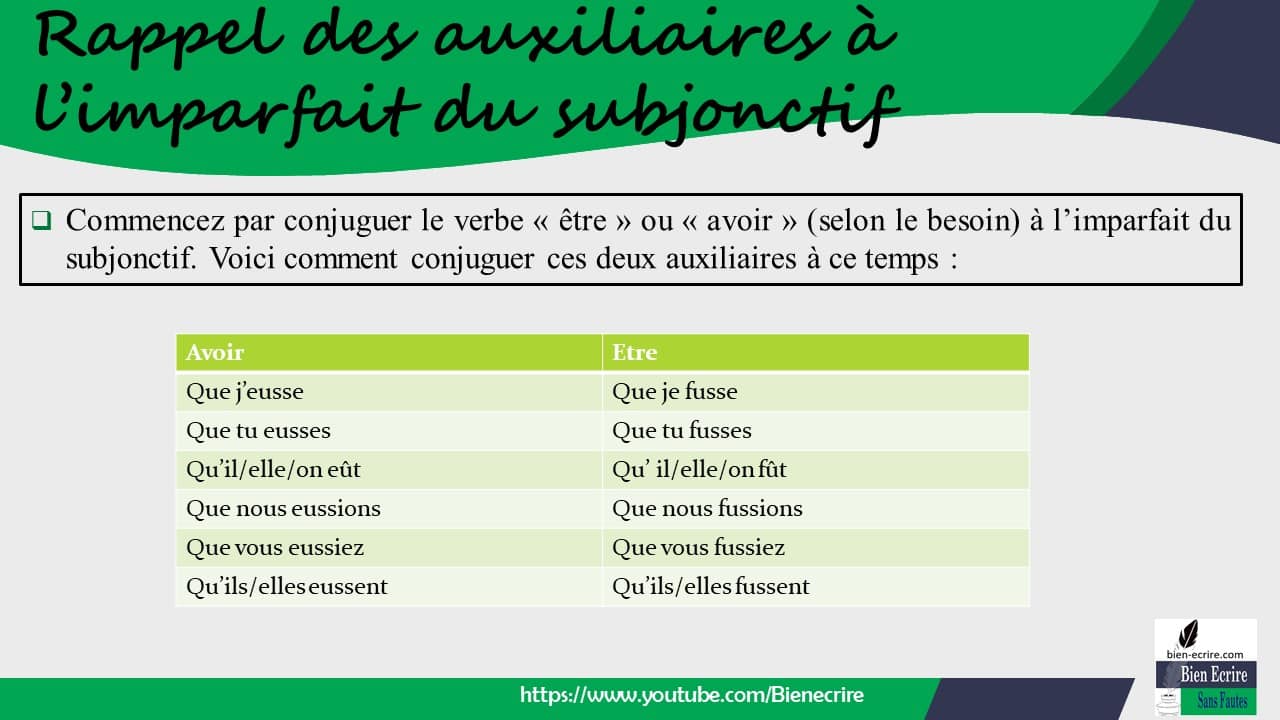
Note: You must be logged into your Progress with Lawless French account to take these tests. Think you’ve got it? Test yourself on the French pluperfect with theses fill-in-the-blanks exercises: You would have passed the test if you had studied.Īfter certain conjunctions, French requires the future perfect where the past perfect is used in English – learn more. Tu aurais réussi à l’examen si tu avais étudié.
#Plus que parfait etre plus#
The plus - que - parfait is the compound form of the imperfect and is formed by using the imperfect of the appropriate helping verb ( avoir or être) + the past participle of the verb. If I had finished the work, I would have left early. The plus-que-parfait (the pluperfect) indicates that an action had taken place and had been completed before another past action took place.

Par exemple… Si j’avais fini le travail, je serais parti tôt. The past perfect is used without a subsequent action in hypothetical si clauses – when something could or would have happened if a condition, stated with the past perfect, had been met. I did the laundry and Ana mowed the lawn. J’ai fait la lessive et Ana a tondu le gazon. J’ai fini tout le travail et puis je suis parti. If you’re just making a list of two things that occurred, either one after the other or at the same time, you don’t need the past perfect. It’s important to understand that the past perfect is used when there is a relationship between the two verbs: the one in the past perfect led to or had some bearing on the one that came second. I had finished all the work before leaving. Par exemple… J’avais fini tout le travail avant de partir. The second action may be stated with avant de + infinitive or avant que + subjunctive, or the verb can even be implied with avant + noun, as long as that noun refers to something in the past. – Tu n’as pas répondu à la porte hier soir. She had finished all the work when I left.

The sun had already started to set when I arrived.Įlle avait fini tout le travail quand je suis parti. Par exemple… Le soleil avait déjà commencé à se coucher quand je suis arrivé. The action that occurred second is usually stated with another past tense, such as the passé composé or imperfect. The past perfect is used for the verb that happened first, the one that is further in the past. The use of the past perfect is very similar in French and English. Learn more about Lingolia Plus here Le plus-que-parfait – Lingolia Plus Exercisesīecome a Lingolia Plus member to access these additional exercises.The past perfect, also called the pluperfect, is a verb tense that distinguishes between two related things that happened in the past, indicating which one occurred before the other. With Lingolia Plus you can access 17 additional exercises about Le plus-que-parfait, as well as 624 online exercises to improve your French. | Imparfait form of être + past participle of descendre.| Descendre is an irregular verb.|In constructions using être, the past participle agrees in gender and number with the subject (Juliette → feminine singular).

Est-ce qu'elles (aller) déjà dans ce restaurant? | Imparfait form of être + past participle of aller.| -er verbs construct the past participle using é.|In constructions using être, the past participle agrees in gender and number with the subject (elles → feminine plural).

Remember – not all verbs follow the typical conjugation rules. | Imparfait form of avoir + past participle of chercher.| -er-verbs construct the past participle with é.Ĭomplete the sentences using the correct plus-que-parfait form of the verbs in brackets. | Imparfait form of avoir + past participle of rendre.| Rendre is an irregular verb.|See the list of irregular verbs. | Imparfait form of avoir + past participle of choisir.| -ir verbs construct the past participle with i.


 0 kommentar(er)
0 kommentar(er)
